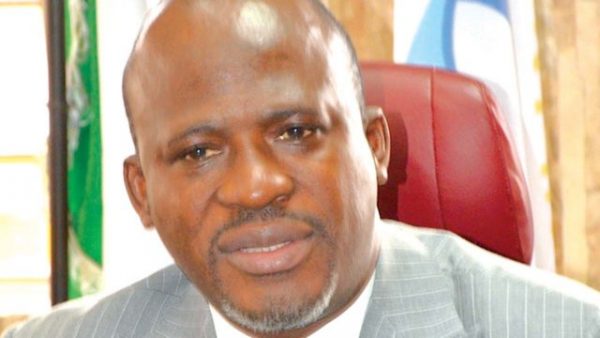Freight Forwarders Quit VIN Valuation Protests, As NSC Intervenes

By Kenneth Jukpor
Five days after protests at the Tin Can Island Ports (TCIP) crippled port activities at the RoRo terminals and general cargo terminals, freight forwarding associations have agreed to commence operations and encouraged the protesters to dismiss the strike action.
This agreement was attained after a meeting with the Executive Secretary of Nigerian Shippers’ Council (NSC) in Lagos, today.
While engaging the leadership of the Association of Nigeria Licensed Customs Agents (ANLCA) and National Association of Government Approved Freight Forwarders (NAGAFF), the Executive Secretary of NSC, Hon. Emmanuel Jime got the freight forwarders to agree to suspend the strike and allow the evacuation of general cargoes at TCIP.
The NSC boss has also set up a committee comprising some veteran freight forwarders and Directors of NSC in a bid to develop core problematic issues with the new Vehicle Identification Number (VIN) valuation process that would be discussed with the Comptroller-General of Nigeria Customs Service (NCS).
Speaking at the meeting, the National Secretary of ANLCA, Mr. Babatunde Mukaila noted that a delegation of ANLCA has extracted an assurance to suspend the VIN valuation system from the Customs leadership on Wednesday last week but the anticipated directive wasn’t sent to the Commands leading to the protests when the implementation was enforced.
“On February 17th, 2022, all freight forwarding associations met and pleaded with our members to calm down while we engaged with Customs. We met the Customs and conveyed these concerns. We also appealed to the Comptroller-General of Customs in subsequent letters. So, it was difficult to prevent the protests when our members waited for one week without any results from our engagement with Customs leadership”
“It is important to note that 70-90% of vehicles are imported through Tin Can and PTML. Customs have agreed that the VIN valuation design neglected the extant laws on wear and tear as well as the 10% depression in value of used cars. Less than 10% of the vehicles at the ports were able to access Customs portal for the duties. There are several issues that we observed and we asked them to revert to manual process while these issues are resolved. We aren’t against automation because it’s what we have always wanted, but the process must be transparent and realistic,” Mukaila said.
Also speaking, the Deputy National President of NAGAFF, Dr. Segun Musa warned that Customs persistence with the current VIN valuation process would lead to increase in smuggling activities as importers will begin to explore other means of bringing in their vehicles.
“Vehicle smuggling will increase and the federal government would have to channel its limited resources towards combating smuggling. If this isn’t nipped in the bud, there is also the tendency for Customs to come up with similar approaches for other goods,” Musa said.
At the meeting between the Executive Secretary of NSC, Hon. Emmanuel Jime and the representative of the Association of Nigerian Licensed Customs Agents (ANLCA), National Association of Government Approved Freight Forwarders (NAGAFF), the association leadership said they will plead with their members to allow cargo operations but strike action will continue on Roll on Roll Off operations.
Meanwhile, the Public Relations Officer, Tin Can Island Customs Command, Mr. Uche Ejesieme has commended the leadership of freight forwarding groups for organizing the strike action in an orderly manner since the protests began on Monday.
“The essence of this automation is to close the gaps and facilitate trade. While I sympathize the protesters, the truth is that these are teething challenges with a new system. At this point, I must commend the associations, especially the leaders because the protesters have been able to organize themselves in an orderly manner without breaking the law or attacking anyone,” Ejesieme said.







